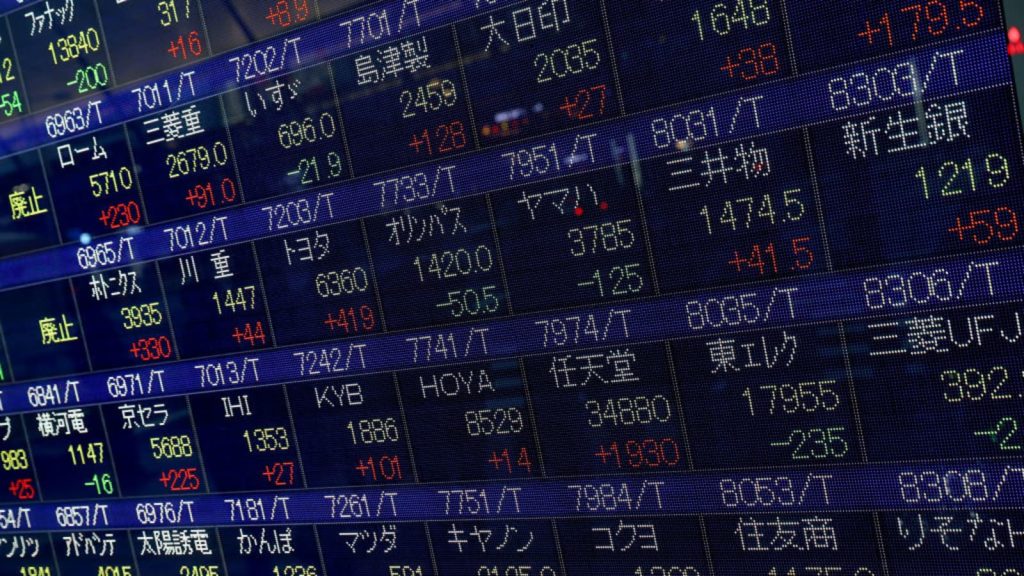
SINGAPORE — Shares in Asia-Pacific were mixed in Wednesday trade. following overnight comments from U.S. Federal Reserve Chairman Jerome Powell, who said he’s resolved to raise rates until inflation comes down.
The Nikkei 225 in Japan rose 0.71% while the Topix index traded 0.78% higher.
Japan’s economy shrank 1% on an annualized basis in January-March as compared with the previous quarter, government data showed Wednesday. That was less than the 1.8% contraction predicted in a poll, according to Reuters.
Elsewhere, mainland Chinese stocks slipped, with the Shanghai Composite down 0.37% while the Shenzhen Component dipped 0.157%. The Hang Seng index in Hong Kong also declined 0.64%.
South Korea’s Kospi rose about 0.1%. Australian stocks also saw gains as the S&P/ASX 200 climbed 0.91%.
MSCI’s broadest index of Asia-Pacific shares outside Japan traded 0.31% higher.
U.S. Fed Chair Jerome Powell said he will back interest rate increases till prices begin falling back toward a healthy level. Earlier in May, the U.S. central bank raised rates by half a percentage point —its largest hike in two decades — as it looks to fight inflation.
Overnight on Wall Street, the S&P 500 jumped 2.02% to 4,088.85 while the tech-heavy Nasdaq Composite surged 2.76% to 11,984.52. The Dow Jones Industrial Average gained 431.17 points, or 1.34%, to 32,654.59.
“The markets have had a nice run last night and that’s largely because of the fact that .. on a year-to-date basis we have like six consecutive weeks of weekly losses, we have the biggest tech underweight since 2006 and we have the biggest equity underweight since May 2020,” Kelvin Tay, regional chief investment officer at UBS Global Wealth Management, told CNBC’s “Squawk Box Asia” on Wednesday.
“The market is actually poised for a rally but the big question is: is this a bear market rally or is this a sustainable rally going forward?,” Tay said. “I think it’s going to be hard for the rally to actually keep its legs given the fact that, you know, you have quantitative tightening happening in the next couple of weeks as well.”
Currencies and oil
The U.S. dollar index, which tracks the greenback against a basket of its peers, was at 103.438 after a recent decline from levels above 104.
The Japanese yen traded at 129.16 per dollar, having held above the 129 level against the greenback for much of the week so far. The Australian dollar changed hands at $0.7002, as compared with an earlier high of $0.7046.
Oil prices were higher in the afternoon of Asia trading hours, with international benchmark Brent crude futures up 0.39% to $112.37 per barrel. U.S. crude futures climbed 0.8% to $113.30 per barrel.